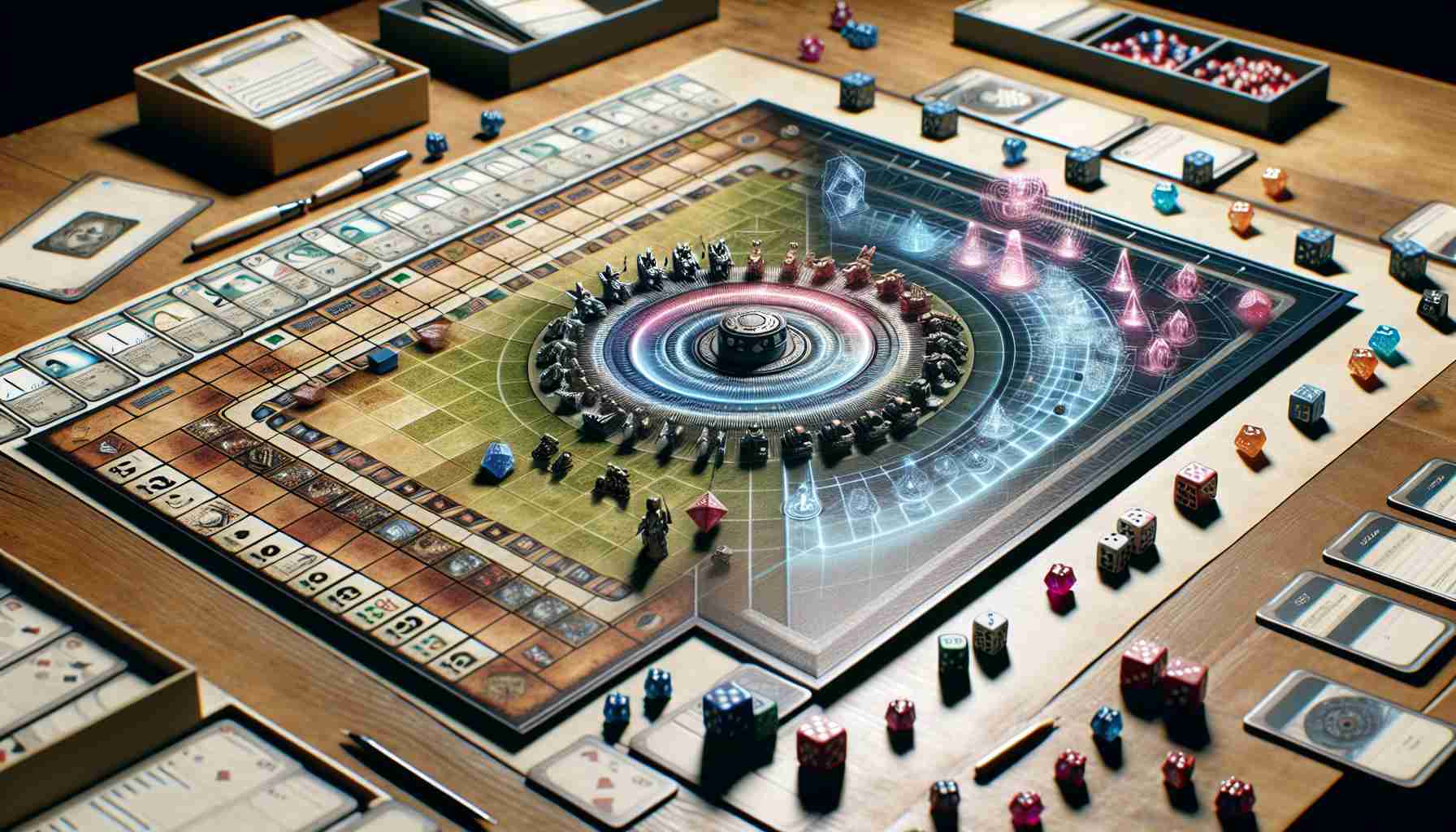Artificial Intelligence (AI) is rapidly transforming various industries, including creative endeavors like board game design. While the recent debut of the film “The Last Screenwriter,” entirely penned by ChatGPT, sparked debates in the cinematic world, the influence of AI is now extending into the realm of board games as well.
Just as “The Last Screenwriter” challenged traditional screenwriting, could we someday witness a board game entirely created by AI like ChatGPT? The idea of utilizing AI to develop game rules is a thought-provoking concept that may redefine the creative process, from narrative construction to gameplay dynamics.
AI’s Impact on Hollywood: “The Last Screenwriter”
The narrative of “The Last Screenwriter” revolves around Jack, an award-winning screenwriter grappling with a creative crisis while collaborating with an experimental AI program. This storyline, almost prophetic in nature, echoes the current concerns within the film industry regarding the automation of creative endeavors.
Swiss director Peter Luisi undertook a bold experiment by allowing ChatGPT to craft the entire screenplay within four days based on a brief 17-word sentence. Despite initial inconsistencies, Luisi opted to proceed with filming, utilizing a “modest” budget of 900,000 euros / 850,000 CHF.
While the London premiere faced a backlash and accusations of undermining the creative process, the broader debate surrounding AI-generated content remains contentious. Critics question whether AI contributes genuine creativity or merely conducts advanced plagiarism.
The Ethical and Juridical Implications of AI
The increasing integration of AI in artistic creation raises ethical and legal inquiries. How should copyright issues be managed when AI draws inspiration from existing works? Preserving diverse creative voices amidst a potential homogenization of AI-generated content necessitates thoughtful regulatory frameworks.
AI Enters the Board Game Arena
As the film industry grapples with AI’s influence, the board game sector also stands at the forefront of potential AI integration. AI could revolutionize game creation, development processes, and player experiences, facilitating automatic rule generation, immersive world-building, and mechanic balancing.
Embracing AI in board game design may entail requesting AI assistance in developing strategic gameplay concepts drawn from diverse inspirations. In a world where creativity often entails remixing existing ideas, AI’s public availability and vast database access may pave the way for innovative game designs tailored to diverse player demographics.
Expanding Horizons: AI’s Role in Board Game Design Evolution
While the impact of AI on creative fields like cinema has garnered attention with projects like “The Last Screenwriter,” its potential in board game design remains a compelling frontier yet to be fully explored. Could AI eventually create an entire board game from scratch, challenging conventional design processes and pushing boundaries of creativity?
The Uncharted Territory: AI-Generated Narratives and Mechanics
One significant question that arises is how AI can enhance not only the narrative construction of board games but also the mechanics that drive gameplay. Can AI truly understand player preferences and craft engaging gameplay experiences that cater to a diverse audience? The integration of AI in board game design could lead to dynamic narratives and adaptive rule systems that adjust based on player interactions.
Key Challenges: Balancing Creativity with Authenticity
A crucial challenge in utilizing AI for board game design is striking a balance between leveraging AI’s capabilities for innovative ideas while preserving the authenticity and human touch that make games captivating. How can designers ensure that AI-generated content remains original and does not veer into derivative territory? Maintaining a clear distinction between AI assistance and creative ownership is essential in navigating this delicate balance.
The Controversy: Authenticity vs. Plagiarism
One of the controversies surrounding AI in creative fields is the fine line between authenticity and plagiarism. When AI algorithms draw inspiration from existing games or mechanics, how can designers ensure that the final output is not simply a rehashed version of existing works? Addressing concerns of originality and creative integrity becomes paramount in exploring the full potential of AI in board game design.
Advantages and Disadvantages of AI in Board Game Design
On one hand, AI integration in board game design offers unparalleled opportunities for rapid prototyping, data-driven decision-making, and streamlined development processes. AI can assist in generating complex game rules, balancing mechanics, and even predicting player behavior to enhance overall gameplay experiences. However, the reliance on AI may also pose challenges in retaining the human element of creativity, risk-taking, and spontaneity that are intrinsic to traditional game design approaches.
In conclusion, the intersection of AI and board game design presents a fascinating landscape of innovation, creativity, and ethical considerations. As designers navigate the possibilities and pitfalls of incorporating AI into the creative process, thoughtful reflection on questions of authenticity, player engagement, and regulatory frameworks will be essential in shaping the future of board game design.

